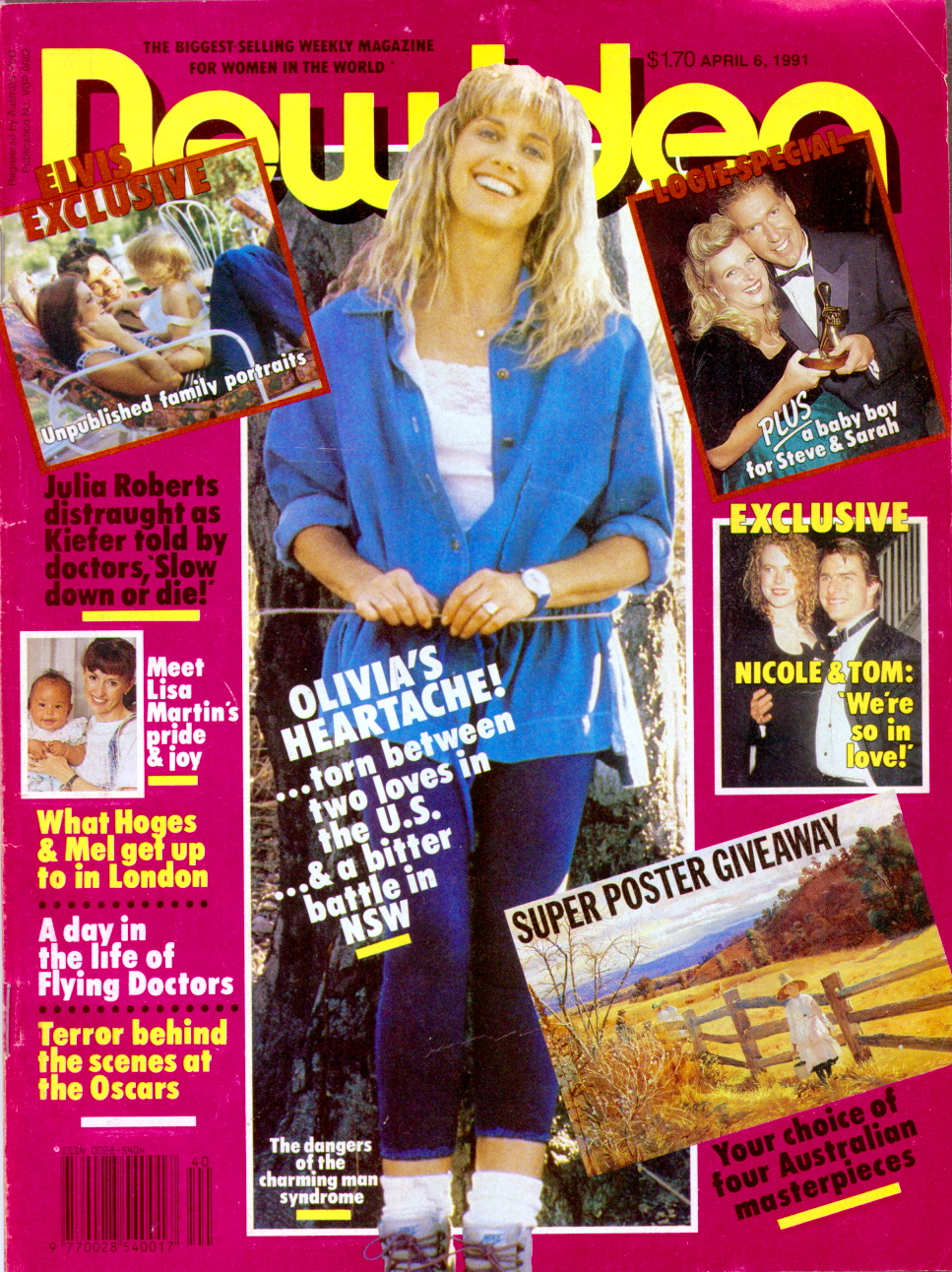Olivia, Environmental Heartache
By Ivor Davis and Brian Blackwell
Olivia Newton-John is fighting battles on two fronts on either side of the Pacific. While she’s involved in a fight to save her Koala Blue empire in the U.S. from going under completely, Livvy finds herself embroiled in a bitter environmental controversy in Australia, with locals opposing her backing of a proposed community environmental village next to her hideaway home at Ballina in northern NSW. The irony for Olivia is that her concern for the environment she’s a special U.N. environment ambassador has been blamed for the demise of Koala Blue, which has just filed for bankruptcy. Hollywood insiders reveal that part of the problem was Livvy was so busy with her environmental activities that she and her business partner Pat Farrar may have neglected the business.
Now, as she sets out on her first concert tour in more than six years, there are people claiming she is touring again, something she has admitted to not liking, because she needs the money. But friends and business associates say this is incorrect. “She’s not broke, she’s not selling her house and she’s not going out of business,” says one friend. But Koala Blue, the trendy boutiques that attracted shoppers around the world, is the latest victim of America’s recession. Livvy has been forced to follow in the footsteps of several larger stores and seek the only way out: bankruptcy.
“We own 12 stores in America and we may close as many as 11 of them,” reveals Dan Zuckerman, vice-president of Koala Blue. In the early Eighties Livvy got the idea of opening her shop after complaining that she missed food and clothing from Australia. The idea took off and later there were 60 stores around the world. So why did Koala Blue end up singing the blues? The recession savagely hit the retail market, and Livvy’s creditors couldn’t pay. Late last year, warning bells began to ring. By the time Livvy and Pat brought in new financial directors to put the ship on a steady course, the damage had been done. It was left to financial experts Gloria Teague and Dan Zuckerman to try to plug the holes. They confronted Livvy with the facts: filing for bankruptcy was the only way to keep Koala Blue alive. “That way we can sweep away the dead wood and start again,” says Dan Zuckerman. “People weren’t paying their bills. But everything has a silver lining: Livvy and Pat have wanted to go into department stores for a long time, and this is our opportunity to refocus our direction and press ahead for a bright future.”
Livvy and Pat admit Koala Blue may have grown too quickly. At one time they were seeing new franchises open almost monthly. Despite the gloomy picture, Livvy has been putting on a happy face. Only hours after the news broke, she was at a cocktail party in New York, talking up a storm with executives from leading department store Saks, which wants to retail Koala Blue merchandise. Trying to put things into perspective, Pat Farrar notes: “We hope the lines that have been successful will continue. We plan to add several lines including environmental products, men’s and children’s clothing, fake furs and things like that. We’re getting out of retail and into wholesale.”
When it filed for bankruptcy, the company listed $6 million in liabilities and $3.9 million in assets. That doesn’t mean Livvy and Pat are penniless, and their factories will continue to turn out fashion wear that they both design.
Back in Australia, environmentally conscious Olivia is faced with another irony: opponents of the community village she’s backing near Ballina say it will do no good for the environment at all. In fact they claim it is a potential haven for drug addicts, dole bludgers and religious fanatics. Olivia and her husband Matt Lattanzi became involved with the project through a friend, the anti-nuclear activist Dr Helen Caldicott. “If it is built and conducted the way it has been presented to me, it has my full support,” Olivia told Ballina Shire Council. What Olivia and the project’s backers regard as a scheme to “live with nature without destroying it” is seen as nothing like that by neighbors at Meerschaum Vale, near one of the last remaining pockets of rainforest in the area.
The proposal has succeeded in uniting the Meershaum Vale community to oppose the project setting Olivia against the neighbors she supported a few years ago when they fought another housing development in the area. The development project, backed by businesspeople, solicitors, doctors and film-makers, envisages a 12-home village, with a large area set aside as an “environmental protection zone” and for “permaculture agriculture”. The locals maintain, however, it will cause traffic upheaval, sewage contamination of local creeks, undermine property values and adversely affect the area’s rural character.
Ballina Shire Council agrees with the residents and is refusing to allow the project to go ahead. But an appeal is planned. “This sort of row is the last thing Olivia needs at the moment,” says one showbiz observer. “Although she’s caught up only on the fringes of it, the fact remains that she has put herself into direct conflict with many of her neighbors. “It also has the potential to give her green image a bit of a knock, because the opponents are adamant it will do the environment no good at all.”
